Was intuition previously developed in humans as well as in animals? Concrete and abstract forms of intuition.
My God, gravity!
My God, evolution!
thank you for the truths vague crumbs, Apostle saint Richard Dawkins.
the eyes of so many have opened, and all your books and video documents
The fact of the presence of the envoy of God on our planet is pure fiction
Follow me, I am your guide, to where scientific works are righteous only
Into the realm of proven theories
Repent, ignoramuses, for woe to you,
From multi-moguls to street naked, woe to you
God is all infinity of space and time
we are tiny, but realizing this, we are even smarter than him in some ways
Well, as “him”: God is a fiction, measurable by the framework of personality
There is a Universe: uninterrupted all indispensable and inside we
its infinity
so multidimensional and confused
That our desperate five senses dick when they understand it.
Probably the smallest quark
Includes galaxy palette
And in one of them you also look at the night sky in a plain dress.
App.
My God, gravity!
My God, evolution!
I humbly kneel, recognizing myself as an explosion of a big slave
I want to travel, be inspired, make money
I want to remember the short moment in which I am on this planet
And I do not need the Koran or the Bible, intuition or science will answer.
All that is, everything is one living organism, unthinkable and all-encompassing
You will understand this by once opening the soul connector to the world
If you look at it, people are just machines for the survival of genes.
We are not here for long and there is only sense in the most ordinary
Only love has meaning.
And this is for you, with trembling gratitude for the fact that you are intently drowning in me.
me and you are islands of stardust, wandering and becoming more complicated for billions of years
space save us when we are gone. Save the earth's ball.
disintegrated into atoms, disintegrated into atoms
humble universe, we will be scattered and re-hidden.
but someday, inspired by billions of unimaginable years
The universe will again come up with a place and time for our atoms,
so that we are close again
App.
My God, gravity!
My God, evolution!
I humbly kneel, recognizing myself as an explosion of a big slave
I want to travel, be inspired, share the fire burning in my eyes
I want to remember the short moment in which I am on this planet
And I do not need the Koran or the Bible, intuition or science will answer.
*Richard Dawkins speaking* My Lord gravity!
My Lord, the evolution!
thank you for the truth vague crumbs holy Apostle Richard Dawkins.
It opened to the apple of so many, and all your books and videodoki
The fact of the presence of the authorized representative of God on Earth - pure fiction
Follow me, I "m your guide, where only scientific righteous works
In the kingdom of proven theories
Repent, ye simple ones, because you grief,
From street to multimagnatov Goli, you grief
God - is the entire infinity of space and time
we are tiny, but realizing it, we even somewhat wiser it
Well, how "his" God - this is fiction, the scope of the individual measurable
Is the universe: uninterrupted and without fail within us
Infinity her
so multidimensional and putana
With our five senses dick desperate when they realize it.
Probably the smallest quark
It includes palette galaxies
And one of them, you also look at the sky at night, striped dress.
Solder.
My Lord gravity!
My Lord, the evolution!
I humbly kneel, pleaded large slave explosion
I want to travel, to be inspired, to make the rules
I want to remember a brief moment, in which I am on this planet
And I do not need the Koran or the Bible, or the science of intuition answer.
Everything that is, everything - one living organism incredible and comprehensive
You will understand it, the world connector opening of the soul once
If you look, people are just machines for the survival of the genes
We are here for a long time, and it makes sense only in the ordinary
The meaning of love is only.
And this is for you, trembling with gratitude for what you have in me intently drowning.
you and me - islands of star dust, wander and complicates billion years
save us space when we are gone. Earth globe save.
disintegrating into atoms, atoms are split into
modest universe we dispelled and perepryatat.
but ever inspired unimaginable billions of years
The universe will come up again for the time and place of our atoms,
So that we were close again
Solder.
My Lord gravity!
My Lord, the evolution!
I humbly kneel, pleaded large slave explosion
I want to travel, to be inspired, to share a burning fire in his eyes
I want to remember a brief moment, in which I am on this planet
And I do not need the Koran or the Bible, or the science of intuition answer.
*Richard Dawkins speaking*
In scientific and cognitive activity, a special place is occupied by the intuition of a scientist, which, as one might assume, is based on the personal and collective unconscious, as well as on various forms of implicit knowledge.
In Jung, in particular, there is an argument about intuition in its relationship with sensation, feeling and thinking.
Intuition is an irrational function. It is a “premonition”, “... is not the result of an intentional action, it is rather an involuntary event depending on various internal and external circumstances, but not an act of judgment” (Jung K. G. Approach to the Unconscious. P. 57). However, he did not leave a developed theory of intuition, and it is necessary to turn to other studies, although even today they are not enough. As an irrational principle, intuition performs a kind of “starting” function in the creative movement of the mind, which puts forward new ideas or instantly “grasps” the truth, not as a result of following the laws of logical inference from existing knowledge, but “purely intuitively”, only then “verifying the results with logic ". Unlike the rational mind, which strictly follows the established rules and norms, the mind can, according to Hegel, “resolve the definitions of the mind into nothingness” and, breaking the old one, create a new logic. Accordingly, on this path, overcoming the dogmatism and formalism of reason, the mind goes through stages of movement from the existing rational, through the irrational-intuitive to the new rational. As a specific cognitive process, intuition synthesizes the sensory-visual and abstract-conceptual, as a result, according to Kant, "imagination delivers an image to the concept."
Intuition has a contradictory nature: the suddenness of insight, the unexpectedness of a guess, presupposes preliminary conscious work and volitional efforts to accumulate information, from which “insight”, however, does not follow a logical path, but without which it cannot occur. Sudden "discovery of the truth" presupposes a preliminary "incubation", in the words of A. Poincaré, a period of subconscious activity, during which a new idea matures. In this pe-
Philosophy of knowledge
In a period free from strict discipline of thinking, many different combinations of ideas, images and concepts are born, the selection of which occurs implicitly, on the basis of target installation thinking of the researcher and as a result of some external push, far from the circumstances of the study. The path that leads to conjecture-insight remains unconscious, hidden from the researcher, a ready-made result suddenly comes into the sphere of consciousness, and it is impossible to trace how it was obtained. When you try to do this, the resulting "alloy" of the concept and image "decomposes" into separate representations and concepts, ceases to be integral. The search for methods for studying and describing the "mechanism" of intuition continues.
In science, intuitive concepts are often understood as such concepts, provisions that do not have a clear definition and proof, are ambiguous, allow various interpretations are often based not on logical grounds, but on the conclusions of common sense. Belief in the “self-evidence” of the initial propositions, often expressed in the words “obvious”, “it is easy to see that”, “it follows from here”, can cover up an unconscious error, mislead. Self-evidence as a psychological certainty cannot serve as a criterion of truth, since it often relies on familiar ideas, behind which many significant relationships and the properties are invisible. Any research in both the natural sciences and the humanities involves the identification of such hidden errors and the achievement of a "different class of accuracy." At the same time, it is impossible to identify all intuitive moments and exclude them, having completely defined and formalized all knowledge. Intuition replaces knowledge that has not yet been formed, serves as a kind of guideline that "anticipates" possible ways of research, although it does not have "probative force". Thus, sensual intuition or the ability of visual spatial imagination in geometry, in the final analysis, after the discovery of non-Euclidean geometries, turned out to be erroneous, although heuristically and didactically fruitful.
The well-known Western philosopher M. Bunge, reflecting on intuition, in particular, formulates the intuitionist thesis of mathematics as follows: “Since mathematics is derived neither from logic nor from experience, it must be generated by a special intuition that presents us with the initial concepts and conclusions of mathematics in directly clear and unshakable form.<...>Therefore, the most immediate concepts should be chosen as initial ones.
essential, such as the concepts of natural number and existence" (Bunge M.
intuition and science. M, 1967. S. 56). However, as the philosopher notes, these two concepts are not at all intuitively clear, an infinite sequence natural numbers is difficult to grasp by most people, and the concept of existence creates many difficulties in logic, mathematics and epistemology, primarily due to its indeterminacy. Outlining his vision of the shortcomings and even errors of intuitionism in mathematics, he at the same time notes its fruitfulness, in particular, as stimulating the search for “new, direct proofs of well-known theorems of mathematics, as well as the reconstruction of previously established concepts (for example, the concept real number)” (Ibid., p. 86). Also essential is his requirement to distinguish between the philosophical and mathematical aspects of intuitionism. On the whole, turning to intuition, he is convinced that “logic alone is not capable of leading anyone to new ideas, just as grammar alone is not capable of inspiring anyone to create a poem, and the theory of harmony is not able to create a symphony” (Ibid., p. 109 ). Thus, the irrational elements of cognitive activity, so richly and diversely represented by various types of the unconscious, implicit, intuitive, significantly complement and enrich the rational nature of scientific knowledge. Creating difficulties for the construction of accurate knowledge, they simultaneously include in knowledge an active creative principle and the personal capabilities of the researcher himself.
In general, the modern understanding of rationality recognizes the following main principles: critical analysis of both cognitive and value prerequisites, the possibility of going beyond them (open rationality); dialogism, recognition of the legitimacy of other positions; the unity of rational and non-rational forms in science and culture; trust in the cognizing subject, acting freely and responsibly, critically rethinking the results of his cognition and attitude to the world.
Literature Main
Avtonomova N.S. Reason, reason, rationality. M., 1988. Bunge M. Intuition and science. M., 1967.
Part I. Philosophy of knowledge
Kasaein I. T., Sokuler Z.A. Rationality in knowledge and practice. Critical essay. M., 1989.
Lektorsky V.A. Epistemology classical and non-classical. M., 2001.
Mikeshina L.A. Implicit knowledge as a phenomenon of consciousness and cognition // Theory of Knowledge. T. 2. Socio-cultural nature of knowledge. M., 1991.
Polanyi M. Personal knowledge. Towards a post-critical philosophy. M., 1985.
Porus V.N. Rationality. The science. Culture. M, 2002. Rationality as a subject of philosophical research. M., 1995. Modern Philosophy of Science: Knowledge, Rationality, Values in the Works of Western Thinkers: A Reader. Section IV. M., 1996. Freud 3. Psychoanalysis. Religion. Culture. M., 1991. Shvyrev B.C. The fate of rationality in modern philosophy// Subject, cognition, activity. M., 2002. Jung K.G. Archetype and symbol. M., 1991.
Additional
Asmus V.F. The problem of intuition in philosophy and mathematics. M., 1963. GeytingA. Intuitionism. M., 1969.
Geroimenko V.A. Personal knowledge and scientific creativity. Minsk, 1989. Gurevich A.Ya. The Medieval World: The Culture of the Silent Majority. M., 1990.
Historical types of rationality. T. I-II. M., 1995-1996. Smirnova)



















